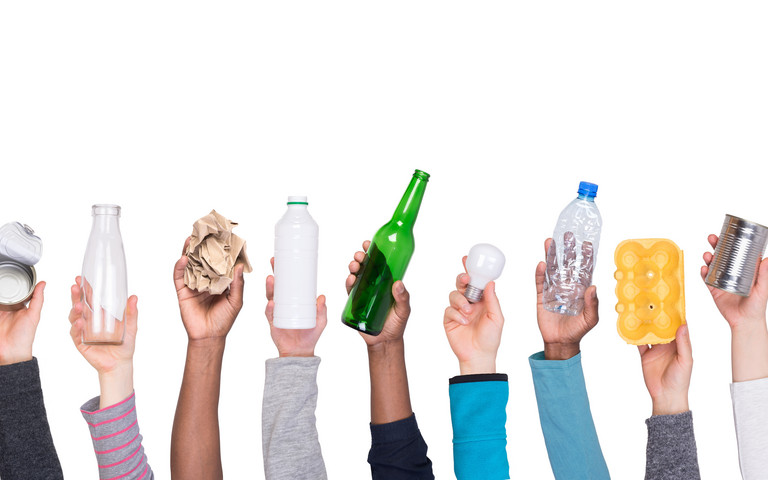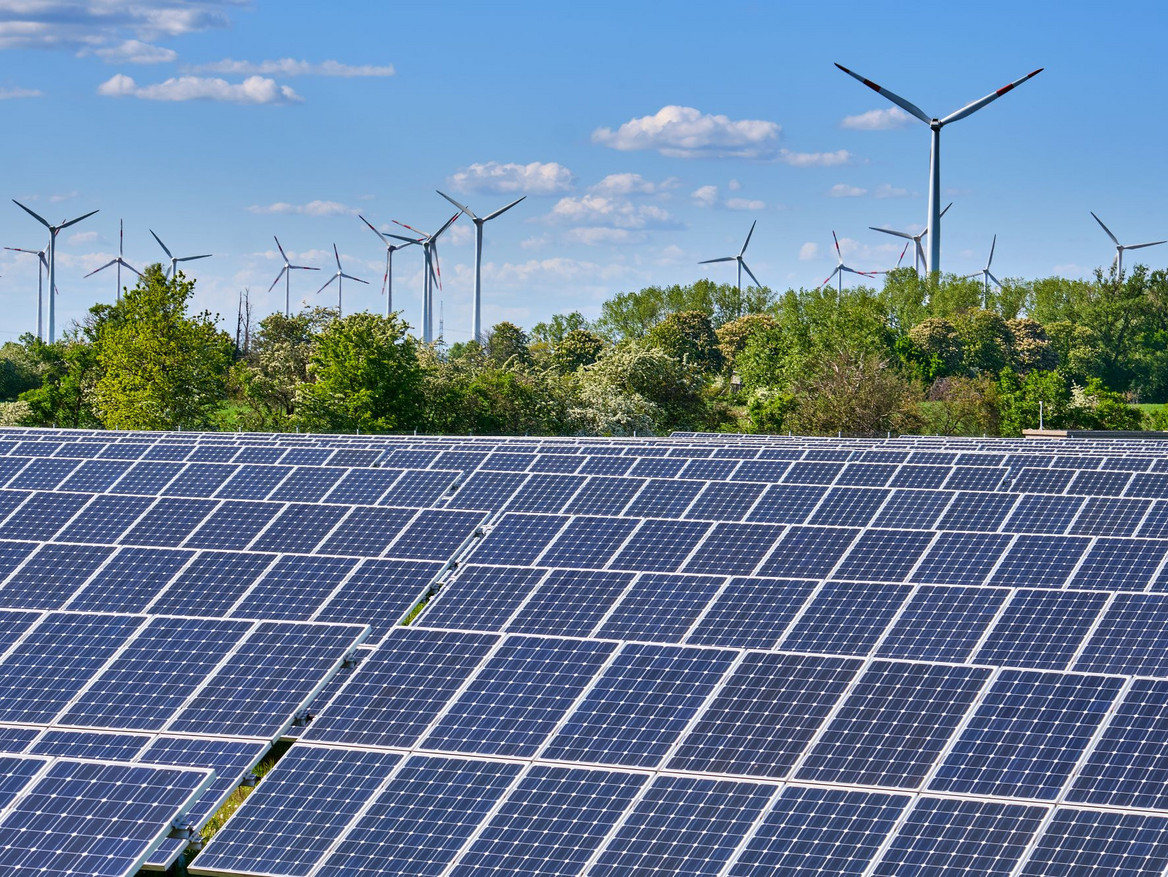Circular economy made easy
Conserving resources and reducing emissions are the goals of a circular economy. Collecting and properly separating waste – instead of leaving it in parks or dumping it illegally – is an essential part of achieving these goals. There are some rules that need to be followed.
Yellow bin: Cans, yes; toothbrushes, no
Plastics go in the yellow bin or yellow bag, known in Germany as the “Gelbe Tonne” or “Gelber Sack”. This includes tin cans, aluminium and composite materials such as drinks cartons. Recycling aluminium is particularly good for the environment as it is very energy intensive to produce.
However, toothbrushes, bandages and disposable gloves do not belong in the yellow bin. Plastic crates for drinks or roller shutters are also exceptions; these must be taken to a recycling centre as they cannot be processed through the yellow bin system. And remember: Electronic equipment belongs in e-waste, even if it contains a lot of plastic.
Materials placed in the yellow bin are processed in sorting facilities. Once cleaned and shredded, the resulting plastic granules can be used to make items such as pipes – a process known as mechanical recycling. But heavily contaminated plastics or composites are unsuitable for this method. This is where chemical recycling comes in: the material is broken down into its chemical components, which can then be used to make new, high-quality products – such as outdoor trousers made from old tyres.
Large quantities don’t belong in general waste
There are several ways to get rid of unwanted items when you move house, such as exchanging, selling or giving them away. Of course, this is not possible with worn curtains or other worn out items. The rule is: anything that doesn't fit in the bin goes in the bulky waste. Up to a certain limit, for example three cubic metres, waste disposal companies often collect old furniture and similar items free of charge.
It is best to check beforehand what they will collect – and when you will be charged. Glued carpets, large amounts of wallpaper and paint cans should be taken to the recycling centre. Building rubble and electronic waste also belong there. Whether it's a smartphone or a TV, the centres accept electronic waste free of charge. However, this does not apply to all types and quantities of waste, so it is worth checking beforehand.
Do you need an organic waste garbage can?
Composting organic waste is environmentally beneficial and legally required across Germany. However, local authorities manage the specifics, which means not all households are provided with an organic waste bin. If you don’t have one, you can compost your waste independently, using a backyard composter or a worm bin.
If you do have an organic waste bin, it’s crucial to avoid putting any plastic in it – even biodegradable plastic bags. Items like cat litter and animal waste are also not suitable. These bins are meant for vegetable kitchen scraps and garden waste, as long as the branches aren’t too thick.
E-cigarettes, LEDs and other problematic waste
Cigarette butts are one of the most common types of litter. Since they are made from synthetic materials and contain toxic substances, they don’t biodegrade. This damages ecosystems and increases soil pollution. The solution? Dispose of cigarette butts in regular trash.
E-cigarettes, containing batteries, are classified as electronic waste. Retailers and mobile hazardous waste collection points accept them for free. If the battery can be removed, you can drop it into one of the many battery collection boxes found in stores. While batteries are highly harmful to the environment, their valuable components are easy to recycle.
Energy-saving LED bulbs and fluorescent lamps are also considered electronic waste and must not be thrown in with household trash. Retailers, collection centers, and recycling facilities accept them at no cost. Similarly, used oil, oil containers, and filters can be returned to retailers, or dropped off with local hazardous waste services.
What counts as illegal waste disposal?
Germany’s Closed Substance Cycle Waste Management Act is the key federal regulation governing waste. First introduced in 2012, it has undergone multiple updates. Among its provisions is the requirement to properly separate and dispose of waste. Failure to comply constitutes an administrative offense, punishable by fines of up to €100,000.
In Rhineland-Palatinate, common environmental violations come with steep fines. Examples include improper disposal of hazardous materials like batteries or waste oil (up to €2,000), dumping over a cubic meter of waste, abandoning several old tires, or discarding large amounts of construction debris (up to €2,500 for each offense).
Improper disposal of highly hazardous materials—such as substances that can cause cancer, explode, ignite, or significantly harm the environment—can lead to criminal charges. Offenders may face prison sentences of up to five years.
Recycling is booming: Get involved
Recycling starts with recognizing recyclable materials, separating them, and ensuring they enter the proper collection systems. Start small—many people have at least one old cellphone gathering dust in a drawer.
Innovative recycling methods are paving the way for creative solutions. For example, BASF, a leading chemical company, has developed a method to create new foam from old mattresses. With around eight million mattresses discarded in Germany each year, this process turns waste into valuable raw materials.
Read this article in German.



